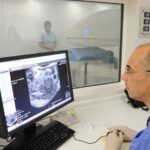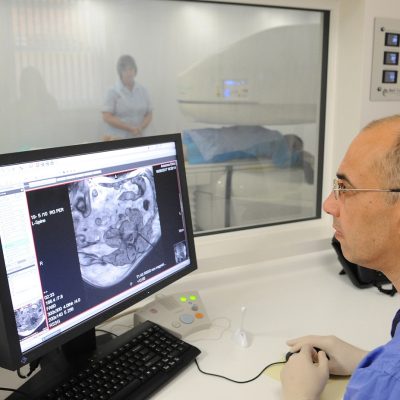The role of Acupuncture in pain management
Dr Suchitra Kanagasundaram, a consultant in pain management at Peterborough’s private healthcare facility Avicenna Clinic, explains the role of acupuncture in pain management.
Acupuncture is often seen as a form complimentary or alternative medicine that fall outside of mainstream healthcare. Other examples include homeopathy, osteopathy, chiropractic and herbal medicine. Acupuncture is a treatment derived from ancient Chinese medicine. Western medical acupuncture is an adaptation that relies on conventional history taking, examination and needling of tender and segmental points.
Acupuncture treatment involves the insertion of fine needles through the skin and it is briefly left in position. You may feel a tingling or a dull ache when the needles are inserted but shouldn’t experience any significant pain. Acupuncture is generally very safe and side effects are transient and low.
We understand that acupuncture stimulates sensory nerves in the skin and muscle and can produce a variety of effects. We know that it increases the amount of “natural pain killers “called endorphins and this may modify the painful signals and are responsible for the beneficial effects experienced with acupuncture.
One of the useful benefits of acupuncture treatment is that it takes into account all symptoms the patient is suffering from. E.g. sleep disturbance, pain, anxiety, nausea etc. This may be related to the old Chinese traditional belief that an energy, or “life force”, flows through the body in channels called meridians. This life force is known as Qi (pronounced “chee”). It is believed that acupuncture can restore the flow of Qi, and alleviate unpleasant symptoms. This added bonus is useful in chronic pain management, as we know that pain can affect all areas of our lives and not just the painful part.
Acupuncture treatment for pain management can be offered after conventional history taking and examination. The technique uses a combination of tender points and segmental points in the body. Treatment is usually provided once a week over a course of 6 weeks. However, the number of session varies depending on the response to treatment. It is best used in a holistic context to pain management and it would not be unusual to prescribe rehabilitative / self management exercises alongside acupuncture treatment so that pain relief is translated to improvement in function, return to work and improvement in sleep.
The role of acupuncture in conventional pain management is well established. There is also good evidence from clinical trials that acupuncture is effective in the short-term relief of tension type headache and migraine. In addition, acupuncture is also often used to treat other musculoskeletal conditions (of the bones and muscles) and pain conditions, including:
Chronic back pain and neck pain,
Joint pain e.g. knee pain secondary to arthritis.
Pain secondary to trigger points –also called myofascial pain.
This is not a complete list and many other conditions have been treated with acupuncture.
Avicenna Clinic is taking the lead and takes the view that acupuncture should be incorporated into conventional medicine and used as a therapeutic tool alongside other available treatments. A consultant pain management specialist will give every patient an initial assessment. This would include history taking, examination and investigation if necessary. The pain specialist will offer acupuncture treatment. The pain specialist can also use their wider medical knowledge to offer alternatives and additional treatment for your painful condition. E.g. medication reviews, injections treatment and advice on rehabilitation.
At Avicenna clinic, we have a range of specialist consultants, operating theatre for surgical procedures and superior in-house imaging facilities –including state-of-the-art MRI, ultrasound and X-ray scanning equipment. We can assess and diagnose all cases of acute and chronic pain quickly and deliver comprehensive treatment plans tailored to you.
To book a consultation or for more information on treating your pain and explore the other available services to help you, contact Avicenna Clinic on 0330 202 0597.












